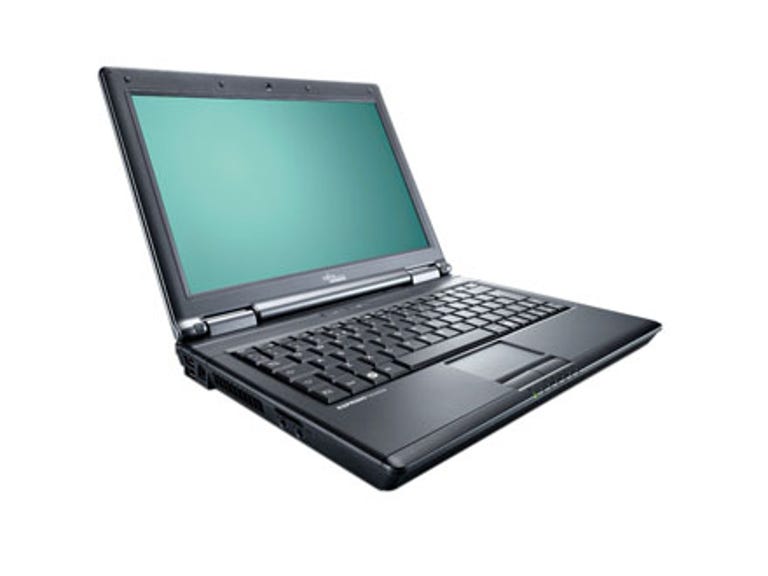 Why You Can Trust CNET
Why You Can Trust CNET Fujitsu Siemens Esprimo Mobile U9200 review: Fujitsu Siemens Esprimo Mobile U9200
The Fujitsu Siemens Esprimo Mobile U9200 is a small laptop which strikes a good balance between size and performance. It's also reasonably priced and provides fast Web access with a built in HSPDA card, while the hard drive is well-sized and the DVD writer is another added bonus
The Fujitsu Siemens Esprimo Mobile U9200 may not be the smallest of models available on the market, but it's still pretty light and demure.
The Good
The Bad
The Bottom Line
It also doesn't suffer from the traditional performance problems associated with true ultraportables and won't cost an arm and a leg at around £1,000.
Strengths
Although it only has a footprint measuring 300 by 223 by 37mm, making it just slightly larger than an A4 piece of paper, the U9200 has the performance of a much larger machine. We tested the 2.2GHz Intel Core 2 Duo T7500 processor with a generous 2GB of RAM and it managed to turn in a PCMark05 result of 4,386, which is virtually unheard of in machines this size. Since we tested the machine, the processor has been upgraded to the 2.4GHz Intel Core 2 Duo T7700, which would reflect even more favourably still in the benchmark result.
If you need to use some heavyweight applications on the go, but tend to find you spend much of your time cramped into economy-sized plane seats, then the U9200 should prove an ideal travel companion and at 1.8kg it's light enough not too make too huge a difference to your hand luggage.
It's also a handy machine to have around when there's no Wi-Fi network or mainline Internet connection available as it's got a built in HSDPA card, providing fast Web access over the existing mobile phone network.
Its keyboard is solid to type on and although the keys are a little cramped, you can still bash out large amounts of prose with a little practice.
The 120GB hard drive should prove sufficient for most mobile needs and there's a DVD writer tucked into the right hand edge should you want to make a hard copy of your files.
Weaknesses
Unfortunately, while the U9200 isn't too shabby when it comes to application performance, that boost doesn't translate into 3D capabilities. Its integrated Intel X3100 graphics chip was only capable of pulling in a 3DMark06 score of 635 which, while still high compared to some laptop models, won't translate into a wholly satisfactory immersive gaming experience.
It's also not too hot when it comes to battery life -- it didn't even manage to last an hour running Battery Eater's intensive test, going to sleep after just 57 minutes had passed. It was better when it came to the more leisurely reader test, but still only managed to pull in a time of fractionally over three hours.
Although it only features a 12.1-inch screen, there's a fairly large border surrounding it, which adds to the dimensions and makes it appear bigger than it needs to be -- the space would either be better trimmed off the frame or dedicated to a larger display. It's also not a glossy screen, so doesn't offer the colour vibrancy seen elsewhere, although it is less reflective as a result.
Conclusion
It's not one of the smallest on the market, but the U9200 packs a fair amount of punch for a machine of its size -- provided you're not after 3D gaming. It's more disappointing on the battery front, however, so it's not suitable for those that need their machines to keep running all day.
Edited by Jason Jenkins
Additional editing by Jon Squire
